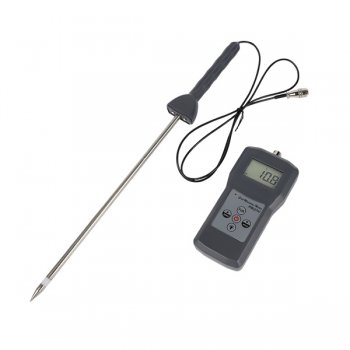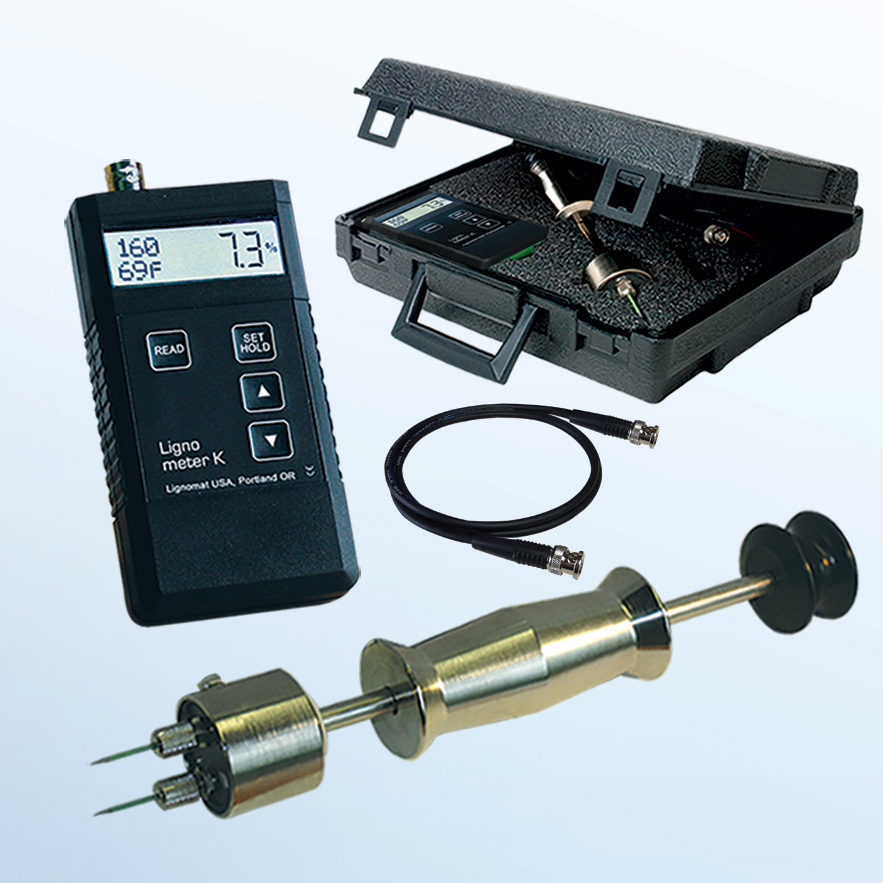Top 10 Advantages of Using a Moisture Meter for Exact Measurements in your house
Top 10 Advantages of Using a Moisture Meter for Exact Measurements in your house
Blog Article
The Ultimate Overview to Moisture Meters: A Comprehensive Introduction and How They Can Conserve You Money
In the world of structure upkeep, building, and various sectors, the importance of properly gauging moisture levels can not be overemphasized. Moisture meters function as indispensable tools in spotting and keeping an eye on moisture web content in products, assisting in protecting against expensive damages and making certain the high quality of products. Comprehending the nuances of different sorts of wetness meters, their applications, and the potential cost-saving advantages they provide can be a game-changer for specialists and services alike. Finding just how these gadgets can not only simplify processes yet additionally add to financial savings is a trip worth beginning on.
Sorts Of Moisture Meters
One usual kind is the pin-type moisture meter, which gauges the electrical resistance in between two pins put into a product. Pinless dampness meters, on the other hand, use electro-magnetic sensor plates to scan a larger location without causing damages to the material's surface area.
Infrared wetness meters determine the thermal residential or commercial properties of a material to establish its moisture web content non-invasively, making them useful for applications where pin or pinless meters might not be appropriate. Recognizing the different types of dampness meters available can help markets select the most suitable device for their certain wetness dimension requirements.

Benefits of Utilizing Moisture Meters

Additionally, making use of moisture meters can cause raised energy performance. By identifying locations with high dampness degrees, such as leaks or inadequate insulation, adjustments can be made to boost power preservation and lower utility expenses. In farming setups, moisture meters play an essential function in optimizing plant returns by allowing farmers to check soil dampness degrees and make notified irrigation decisions. Overall, the benefits of utilizing moisture meters extend throughout different industries, supplying cost-effective services and promoting better top quality control practices.
Just How to Select the Right Moisture Meter
Picking the appropriate dampness meter involves taking into consideration key aspects such as product compatibility, measurement variety, and calibration accuracy. When selecting a wetness meter, it's necessary to make certain that the meter is appropriate for the certain product you will be testing. Different products have varying electrical homes that can affect wetness analyses, so selecting a meter designed for your material is important for precise results. In addition, take into consideration the measurement variety of the wetness meter. Ensure that the meter can identify wetness levels within the variety needed for your applications. Calibration accuracy is one more vital element to remember (Moisture Meter). Go with a wetness meter with site here reputable calibration to make sure regular and specific readings. Some meters may require regular calibration modifications, so recognizing the calibration procedure is essential. By thoroughly reviewing these elements, you can select a dampness meter that fulfills your requirements and supplies exact moisture measurements for your jobs.
Correct Techniques for Moisture Meter Use
To make certain accurate wetness readings and make the most of the efficiency of a image source dampness meter, employing appropriate methods is essential. When using a pin-type moisture meter, place the pins or probes right into the product being tested until they make full get in touch with. Make sure the pins are vertical to the surface area to obtain one of the most precise reading. For pinless moisture meters, hold the device flat against the product and relocate it slowly to cover the whole location for a typical reading. It's vital to adjust the moisture meter according to the product being checked to improve precision. Take several analyses across the surface area and typical them out for a much more trustworthy outcome. Additionally, guarantee that the material being evaluated is accustomed to the atmosphere to stop skewed readings. Regular upkeep of the dampness blog here meter, such as cleansing the pins or sensor, is likewise vital to ensure exact and constant readings. By following these correct techniques, individuals can rely upon their dampness meter to offer trustworthy dampness degrees, aiding in preventing pricey damages or guaranteeing quality in numerous applications.

Price Financial Savings Via Moisture Meter Applications
Just how can the critical use of moisture meters lead to significant cost savings across various sectors? Dampness meters play a critical function in expense financial savings by protecting against possible damage and making sure quality control in different sectors. In the farming market, dampness meters aid in establishing the optimal time for harvesting crops, preventing over-drying or excess moisture that can influence the final product's quality. This exact tracking assists farmers stay clear of unneeded losses and maximize their yield.

Moreover, in the food processing market, wetness meters are necessary for checking item top quality and making certain conformity with safety and security laws. By properly gauging wetness material in food products, producers can avoid putridity, maintain freshness, and reduce waste, causing substantial price financial savings. Generally, the tactical application of moisture meters is a valuable investment that can bring about significant expense reductions and improved performance throughout different industries.
Verdict
In final thought, moisture meters are beneficial tools for spotting and gauging dampness levels in different products. By utilizing the best dampness meter and following appropriate strategies, users can efficiently protect against costly damages triggered by excess dampness.
Dampness meters serve as crucial tools in spotting and checking moisture content in materials, helping in protecting against expensive problems and making certain the quality of products. Infrared wetness meters determine the thermal residential or commercial properties of a product to identify its moisture content non-invasively, making them beneficial for applications where pin or pinless meters may not be suitable.Dampness meters provide vital advantages in properly assessing and monitoring dampness degrees in varied products and settings. In farming setups, wetness meters play a vital duty in enhancing plant yields by allowing farmers to keep track of soil moisture degrees and make educated watering decisions.In conclusion, moisture meters are valuable devices for gauging and finding wetness levels in different materials.
Report this page